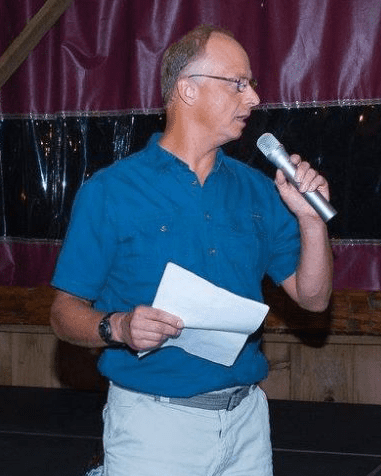Contractor's donation of masks helps in NHS crunch
About a week ago, Welland-based surgeon Dr. Peter Willard had a particularly bad day.
“I had a number of patients slated for cancer surgeries, which had been previously postponed due to the COVID-19 outbreak. I came in to the hospital on the rescheduled day to perform the operations, only to find that my patients’ cancer surgeries had been cancelled yet again, because the hospital had run out of surgical masks for all but critical procedures. So I got pretty upset about that.”
Most hospitals have stopped all elective surgery, according to Willard, but most people don't fully appreciate what that means.
“If you've got a cancer, that's considered elective. If you have a hernia that’s causing you a lot of grief, that's elective. If you’ve got a broken bone, well, that's an emergency, so that get’s done. But it’s all been very dramatic.”
In desperation, Willard called Len Stolk, whom he had met at a Wellspring Niagara fundraiser—a bike ride —last year. Both are avid cyclists, and both live in Fenwick.

Stolk is president of a family-run construction business in Port Colborne, and Willard thought he might be able to source a supply of N95 masks. An N95 is a respiratory protective device designed to achieve a very close facial fit and 95% filtration of airborne particles.
Not only did Stolk email some 200 business contacts in an effort to help out, he went through his own company’s supply and found 150 masks, which he gave to Willard for use by the Niagara Health System.
This act of benevolence should come as no real surprise, given Stolk Construction’s record of giving back to the local community. The United Way of South Pelham, Port Cares, Pelham Pirates, Canal Days, and Port Colborne’s annual New Year Kidz Carnival have all benefitted from the company’s involvement in the past.
The N95 mask is considered the necessary standard for medical use and high-risk environments, but Willard noted that, “if you’re walking to the shopping mall during the pandemic and have safety concerns, I think a simple dusk mask is probably quite reasonable.”
He noted that in countries like Japan, it is culturally acceptable to wear masks in public if there is an outbreak of upper-respiratory infections, and hence the masks are readily available.
Although the medical standard for surgical masks is that they should be used for only one procedure, the reality now is that medical staff are reusing them, said Willard.
“They gave me my mask on Friday, and told me to take it home, and bring it back for use the next week. The shortage is that acute.”
Stories in the news suggest that Canada will be receiving a supply of six million masks from China soon, in part a reciprocation for the medical supplies Canada sent to China when the pandemic first broke.
“How they get distributed becomes a bit of an issue,” said Willard. “But the bottom line is we haven't seen them yet.”
Willard noted that his routine has been “completely obliterated” with the arrival of the coronavirus. As a surgeon, he normally spends half his time in the operating room, and the other half seeing 75 to 100 patients a week in his office. These days, he consults online or by telephone, and meets with only 10 to 15 patients a week in person. He wears personal protective gear in his office.
The doctor’s best defense against the virus?
“Wash your hands. Often. Soap and water, for 20 seconds.”
Asked about his view on the current state of the pandemic, Willard is not very optimistic.
“I don’t think we’re anywhere near flattening the curve yet. At this point, we're definitely in the ascending part of the curve. This is going to take a lot longer than most people think….a year to 18 months is not unrealistic for full containment.”
Relapses are inevitable as time passes, said Willard.
“People kind of relax and try to get back to normal again. We're not going to achieve the herd immunity we’d have if we took no precautions and just let the virus run rampant. But the result of that would be a couple million deaths. I think most of us would rather not swamp the ICUs and have our loved ones dying. So it’s the right approach that Canada is taking.”


